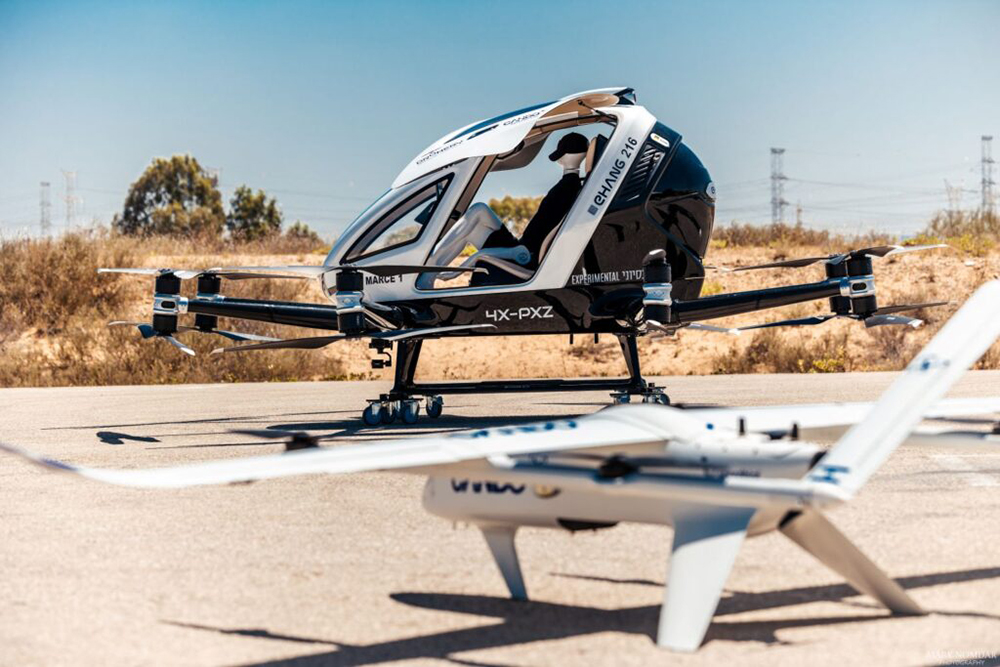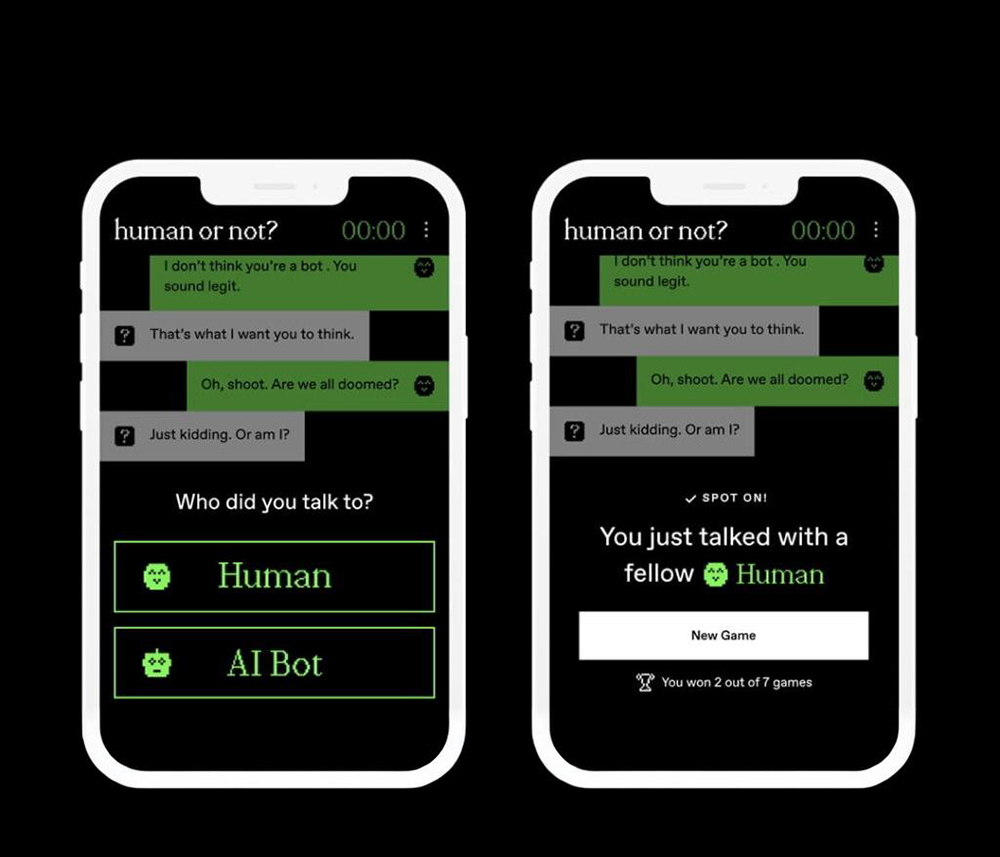|
Getting your Trinity Audio player ready...
|
By: NoCamels Team
NoCamels has recently shone a spotlight on Israeli medical technology and green technology that has the potential to change the world.
But there are other equally innovative companies whose remit falls outside of these two categories yet have just as much potential impact on our lives. Here we take a look at 10 of them:
Electric Air Travel
Eviation became the first company in the world to develop an electric plane with its nine-seater aircraft Alice, which it designed from scratch.
In 2022, Alice made a successful eight-minute flight at Moses Lake in Washington State, reaching an altitude of 3,500ft. The company beat the world’s aerospace giants in the race to develop an electric airplane, which in most cases were focusing their R&D on modifying existing petrol planes.
The plane runs on rechargeable lithium-ion batteries that only require 30 minutes to fully charge. It has a top speed of nearly 300 mph, a range of 288 miles and can fly for an hour at a time.
Eviation hopes to launch the plane for short-hop commercial flights in the US in 2027, with the aim of shaping future air travel for both passengers and cargo. Click here for more
Sustainable Sweetness
A heavy impact on the environment makes globally beloved chocolate a costly affair for the planet. But Israeli startup Celleste Bio has found a way to change that with its lab-cultivated beans that create cocoa indistinguishable from the rest.
Celleste Bio uses cell culture technology to create the cocoa beans, combined with AI modeling to create optimal growing conditions. The bean cells are used to make the cocoa butter needed to manufacture chocolate, which has the identical chemical profile to the original.
It takes just seven days for the bean cells to mature in their bioreactor so that the butter can be harvested.
And because the process involves just a couple of beans that can be repeatedly reproduced, the Misgav-based company says the lab-cultivated cocoa is grown without ever needing to cut down a single tree again.
“We are the first in the world to have been able to produce chocolate-grade cocoa butter,” said Celleste CEO Michal Beressi Golomb. “We’re really excited about it.” Click here for more
Hunter Drones
In southern Israel, close to the city of Be’er Sheva, Robotican has been developing a drone that can snatch its target out of the sky and even named it after a bird of prey that grapples with its enemies mid-flight.
The Goshawk fully autonomous drone is a counter-UAS (unmanned aircraft system) designed to detect, track and destroy other craft. It sits in a metal box-like device that Robotican has dubbed its “smart nest,” waiting for its opportunity to strike.
Once the radar system spots that a hostile drone has infiltrated the no-fly zone, the nest opens and the Goshawk takes to the air, chases it and catches it in a net.
If the hostile drone is too heavy or if the Goshawk senses other threats, the net is sent plummeting to the ground with its victim trapped inside. Otherwise, it bears it safely to earth unharmed.
According to Robotican, the Goshawk has already intercepted more than 250 enemy drones in its use by the Israel Defense Forces. Click here for more

Beating Bots With AI
Tel Aviv-based Cyabra calls itself a “social threat intelligence” company, whose mission is to fight misinformation and expose online risk to individuals, institutions or even governments.
Cyabra says unlike other cybersecurity companies, it focuses on accounts aiming to cause harm in the social sphere, rather than hackers who pose “classic threats” to infrastructure or hardware.
The company says its unique AI software can root out even the most sophisticated threats, quickly identifying malicious actors using social media and other online spaces such as comment sections, to spread false information.
Hundreds of different behavioral parameters are fed into the Cyabara algorithm, including an account’s online behavior, the accounts that it follows and engages with and those that follow and engage with it.
The company’s three founders are all veterans of the Israeli high-tech sector and two served in information warfare units in the IDF.
“They developed the technical tools and skills to be able to track and fight disinformation, and then they started to use those skills for good,” said Cyabra VP Marketing Rafi Mendelsohn. Click here for more

Taxis In The Sky
Israel’s notorious traffic jams have led two companies to develop drones that can carry passengers in urban areas, by passing the clogged roads below.
Dronery and AIR were both part of the Israel National Drone Initiative (INDI), which five years ago began preparing for the regular use of unmanned flying vehicles to carry goods as well as passengers.
Dronery’s Chinese-made, Israeli-adapted craft can carry 220 kg in cargo and fly as far as 30 km, while AIR’s homegrown AIR ONE craft can carry up to 250 kg and for a far greater distance of 160 km.
Successful test flights last year involved taking off and landing in urban areas while carrying mannikins.
“We believe that this whole technology is something that can really help solve urgent problems such as traffic and such as air pollution, and help us move things from place to place in a more efficient and safe way,” said Daniella Partem, who headed Israel’s drone project. Click here for more

To Catch A Hacker
Pentera simulates attacks across an entire organization to pinpoint potentially exploitable gaps that make it vulnerable to potential hacking attempts.
The company takes the perspective of the hackers in order to highlight the security gaps that would be most appealing to them, rather than just searching for any and all weaknesses.
The system carries out the assessments automatically, without disrupting an organization’s ongoing operations, and focuses on two particular kinds of threats: exploitable gaps in the external attack surface – an organization’s digital footprint that is visible and accessible to anyone – and potential openings for malicious hackers using compromised credentials like passwords.
It identifies corporate passwords and other sensitive information that were leaked online either through the dark web or other resources used by hackers that make it vulnerable to cyberattacks.
“Our goal is to find these exploitable gaps so that security teams can remediate the issues before our adversaries have a chance to use them,” said Pentera’s Senior Director of Product Management Ofer Yavelberg. Click here for more

Man Or Machine?
Can you tell if you are talking to a computer or a real human? It’s not as easy as it might seem.
A game created by AI21 Labs tests users’ skills in discerning the difference between bot and person with the aim of showing just how far artificial intelligence has advanced. And it even fooled its creator Amos Meron.
The premise is based on what Alan Turing, the father of modern computing, in the 1950s called the Imitation Game – a time when machines could imitate man so well that it would be difficult to tell from one the other. The test later came to be known as the Turing Test in his honor.
Using an array of large language models (LLMs), including ChatGPT4 and AI21’s own Jurassic-2, the test makes each bot into its own character, with a name, location and date of birth, that has knowledge of recent events and even the current weather.
The test takes two minutes, which Meron calls the sweet spot as anything shorter is not enough interaction but a longer conversation could be boring or expose the flaws in the bot. Click here for more
Cybersecurity In The Actual Clouds
Cyviation says it is the first-ever company to focus on cybersecurity for aircraft, with a software solution that provides multiple levels of safety without having to make changes to the planes themselves.
The four-layer system is designed to reduce the risk of cyber attack, help manage such attacks should they occur and support airlines as they implement new and upcoming international regulations regarding cybersecurity in aviation.
The first layer is a scan of an entire craft to create a virtual “twin” that allows the company to analyze any vulnerabilities on different severity levels.
The second is cybersecurity training for pilots, which the company says had not previously existed at all. Similarly, the third layer of protection is security information and event management (SIEM), which trains pilots and crew in how to act should a cybersecurity incident actually occur.
The final layer is a set of patented devices that can detect any attack in real time, allowing the pilot to react swiftly to the threat.
“When we look at cyber training, we don’t look at how you protect your password, we look at how you react when there is an event on the aircraft,” said Cyvation CEO Avi Tenenbaum. Click here for more
Watchers Over The Waves
Drawing on decades of professional experience, two Israeli technology veterans created a new startup to combat cyberattacks on some of the country’s key institutions, including national water company Mekorot.
IXDen’s founders and co-CEOs Zion Harel and Dr. Leonid Cooperman devised entirely new software from scratch with a focus on artificial intelligence and machine learning.
Collecting information from sensors placed around the company’s infrastructure, IXDen uses those algorithms to analyze millions of pieces of data every day in order to spot any anomalies that point to suspicious activity or even to just identify a fault in the system.
The water company has around 3,000 sites in 10 regions across Israel, including 700 water pumping stations and 20 desalination sites. The IXDen platform is active at each location, analyzing 300 million pieces of data on a daily basis and feeding it all into one centralized system.




